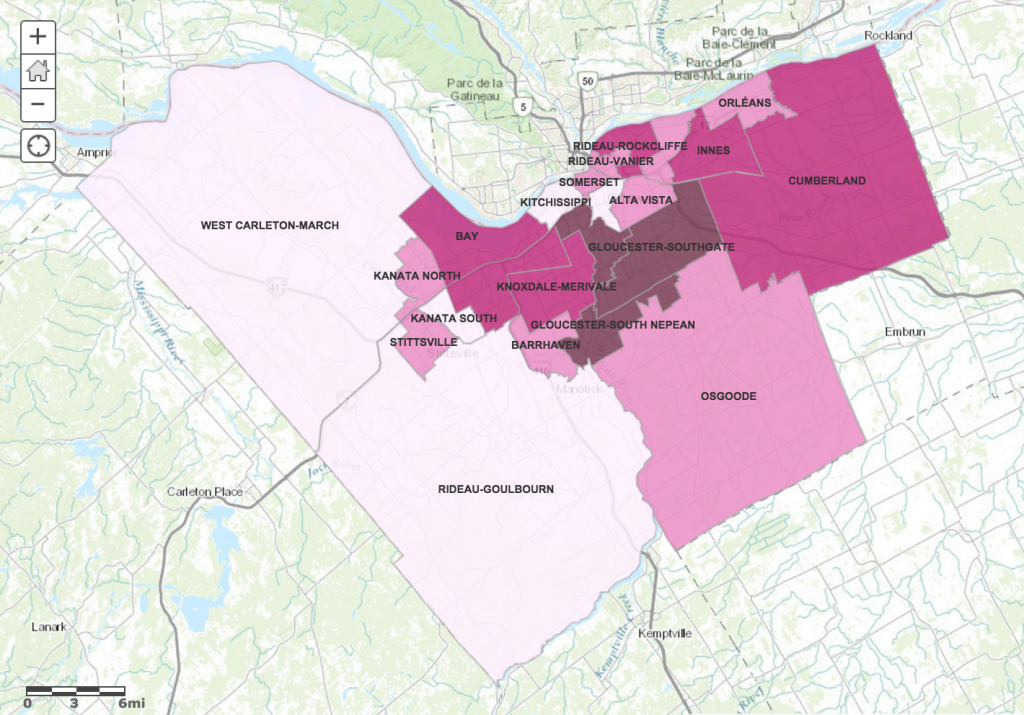A third of Syrian-born residents in the nation’s capital live in the city’s south end, according to an analysis of Statistics Canada’s 2011 National Household Survey.
With the first planeload of Syrian refugees expected to touch down on Canadian soil this week, there are still questions surrounding where these refugees will live in some of the country’s major municipalities.
“We are trying to obviously spread them out,“ said Gloucester-South Nepean Councillor Michael Qaqish referring to the Syrian refugees who are coming to the nation’s capital.
In Ottawa, 900 Syrian-Canadians live in the city’s Gloucester-Southgate, River and Gloucester-South Nepean wards. Qaqish said he’s been receiving phone calls and emails from people in his community asking how they can host a family in their home — and many non-Arabic speaking residents are offering their help.

“Most residents are concerned with shelter, housing and food for these people that have been living in camps for the past few years,” said Qaqish.
There will be a language barrier for many refugees arriving in Ottawa from Syria, a predominately Arabic-speaking country. For Qaqish, he thinks language is the least of everyone’s concerns and is something that can be dealt with much later.
But Brian J. Given disagrees. He’s a professor of anthropology at Carleton University whose research includes immigrant and refugee settlement and adaptation.
“The first priority is that they get the language,” said Given. “We need to make sure they have enough language and basic cultural knowledge so they have a chance at settling.”
Given believes that a basic understanding of English will help refugees establish their own networks in Ottawa. If they can’t speak with others in English, he said there’s a risk that newcomers may settle with a small group of people that they can talk to in Arabic – and may be drawn to communities in the city’s south end.
“The reality is it’s just so much more relaxing when talking to someone who gets you, someone with the same language or even the same cultural fit,” Given said.
Tanya Mendes-Gagnon, senior director of newcomer services at the YMCA, said families who are privately sponsoring refugees have a big responsibility to help settle newcomers.
“We’re reaching out to the host families and really promoting our services so they understand the importance of truly integrating refugees when they arrive,” she said.
According to Mendes-Gagnon, about 800 government-sponsored refugees will be settling in Ottawa by the end of February. The program she runs helps about 2,000 refugees a year access housing, employment and language services.
“For now, our manpower is adequate,” said Mendes-Gagnon. “We’re busy getting the new refugees into their homes.”
In the last two months, Mendes-Gagnon said the YMCA has “ramped up” its work and increased community consultations, especially within immigrant communities. The YMCA’s Language Assessment and Referral Centre will be connecting refugees with programs that’ll help them learn English – but Mendes-Gagnon isn’t worried about an increase in demand just yet.
“It is still early days to say if we’ll need to open up more classes, or provide any extra language services,” she said.
But Given wants refugees to receive immediate language and culture training, even if that presents new trials.
“It’s very challenging to learn a language especially if you’ve already been stressed,” he said.
Without that training, Given said it’s “fairly likely” that refugees will be drawn to communities with a larger Syrian or Arabic-speaking population and may become isolated from what he calls “established Canadians.” And that worries Givens.
“The newcomers will end up paying a price later because of settlement issues and general hostility from the population at large.”
